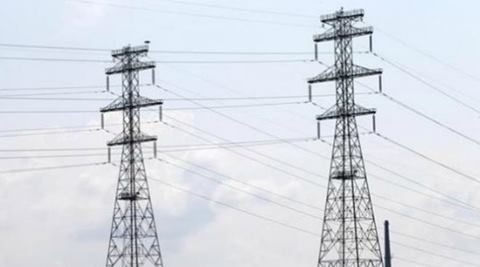I am going to repeat a suggestion I have made in this column before. The government should enact an “energy security and responsibility act “ and set up a “department of energy resources and sustainability” in the PMO under the charge of a person with ministerial rank. The reason I am bringing this issue back onto the table is because I believe, all of the various initiatives that this government has taken to reinvigorate the energy sector will fall short of their intended objectives unless they are woven together seamlessly into an integrated energy policy and implemented within a holistic framework. The government cannot square the circle between its ambition to meet the demands of the public for access to clean and affordable to energy on one hand and its commitment at COP21 to reduce carbon emissions by 30-35 % between now and 2030 on the other, unless it converges the variegated objectives regards coal, oil, gas, nuclear and renewables into one integrated operational plan. The need to do so is urgent given that delay will push each of the governments energy related departments deeper into what can be called the “sunk cost” trap and make it increasingly difficult to subsequently alter course .
I recently attended the presentation by the IEA of its world energy outlook and three relevant messages came through loud and clear. One, while China was the driver of the energy market over the past 25 years, India will provide the locomotion for the next 25 years. It will account for 30% of the incremental addition to global energy demand over this period. Two, technology has narrowed sharply the cost gap between fossil fuels and renewables. Already, wind and solar are competitive against oil for power generation because of the sharp fall in the cost of panels, inverters and turbines and according to the discussants, the tariff difference between coal-based thermal power and renewables may now be as low as a R2-2.50/kWh. The point being, technological advancement will sooner than later overcome the current systemic obstacles (viz energy storage systems) to renewables acquiring scale and competitiveness. But, and this was the third message, renewables will make an appreciable dent in the energy basket only if it receives direct and indirect policy support from the government for not just power but also heat and transport and there is an operational plan defining the changes that need to be made and the investments that will be required to integrate non-fossils into the current transmission and distribution system. A fourth message was implicit . India will have difficulty meeting its INDC’s if coal retains its primacy in the energy basket. The government must, therefore, emphasise demand management and energy efficiency and proactively support clean energy R&D and innovation.
Listening to this presentation and the discussion that followed, I asked myself who in the government has the mandate to respond to these messages. Who (other than the PM) has the executive authority to take an integrated view of our energy situation and develop a clear, coherent and far-sighted strategic and operational plan? Perhaps, the current minister of state for coal, power and renewables, Piyush Goyal? Perhaps the vice-chairman of NITI Aayog? In case of the former, whilst he has a broad portfolio, he has no oversight over oil, gas and nuclear. Plus, one can only speculate whether in the absence of departmental restructuring, there is an institutionalised forum or incentive for civil servants to look beyond their narrow remit. There is no “secretary, energy” a la the foreign secretary to perforate and align departmental silos. Regards the latter, I am still unclear as to his role. Certainly, his predecessor in the Planning Commission had the authority vide the member, energy but without an executive authority, it was a defanged mandate.
It is against this market and institutional backdrop that I am repeating my recommendation.
A law specifically captioned “energy security and responsibility” will signal the government’s determination to tackle energy security within an integrated and holistic policy framework that focusses not just on energy, but also its broader inter-linkages with food, water, environment, technology, infrastructure, conservation and efficiencies. The signal would be reinforced if the act contains clear and measurable metrics for measuring progress towards the provision of secure, quality, affordable and clean energy.
The custodian of this act should be a new department in the PMO—the “department of energy resource and sustainability” under the charge of a ministerial rank. Ideally, the existing departments should be restructured and a minister of energy appointed with overall responsibility for all sources of energy (except, perhaps, nuclear because of its sensitivity) but that would involve a systemic overhaul and the supersession of powerful vested interests. This would take time and could be disruptive. My recommendation is therefore, to this extent, sub-optimal. It is however more feasible and a first step is always better than statis. This department would not tread on existing turf . The existing energy ministries would continue to discharge their responsibilities as currently defined. Rather the role of this department would be to flush out the issues that tend to fall into the cracks between the various ministries and to formulate and develop an integrated energy policy; it would address cross cutting issues including the inter-linkages between energy, food, water and environment; it would harness the combined balance sheet of “India energy Inc” to support the competitiveness of the public sectors international initiatives; it would nurture technical talent; develop technology partnerships and incubate new ideas to invigorate clean energy innovation and it would act as an “energy regulator.” In this latter role, the objective would be to streamline existing processes; provide a forum for information exchange and best practice; to build a cadre of specialised regulators and to act as the arbiter between the centrally appointed regulators and their state counterparts.” In short, the department would be the “energy ombudsman” of the country.”
The author is chairman & senior fellow, Brookings India. Views are personal


